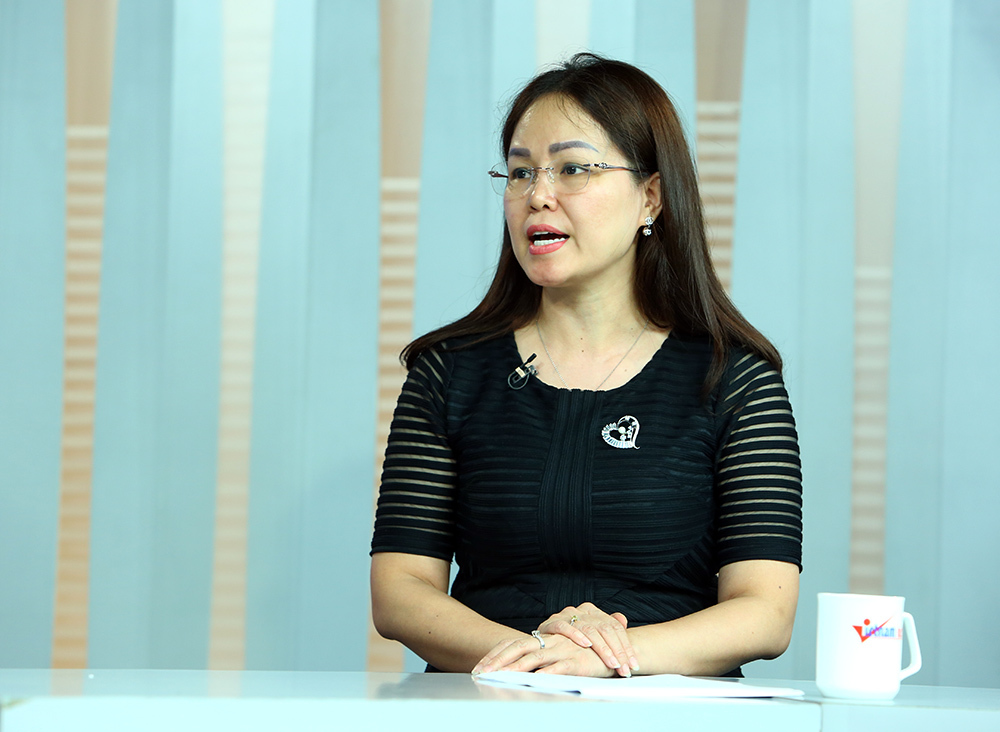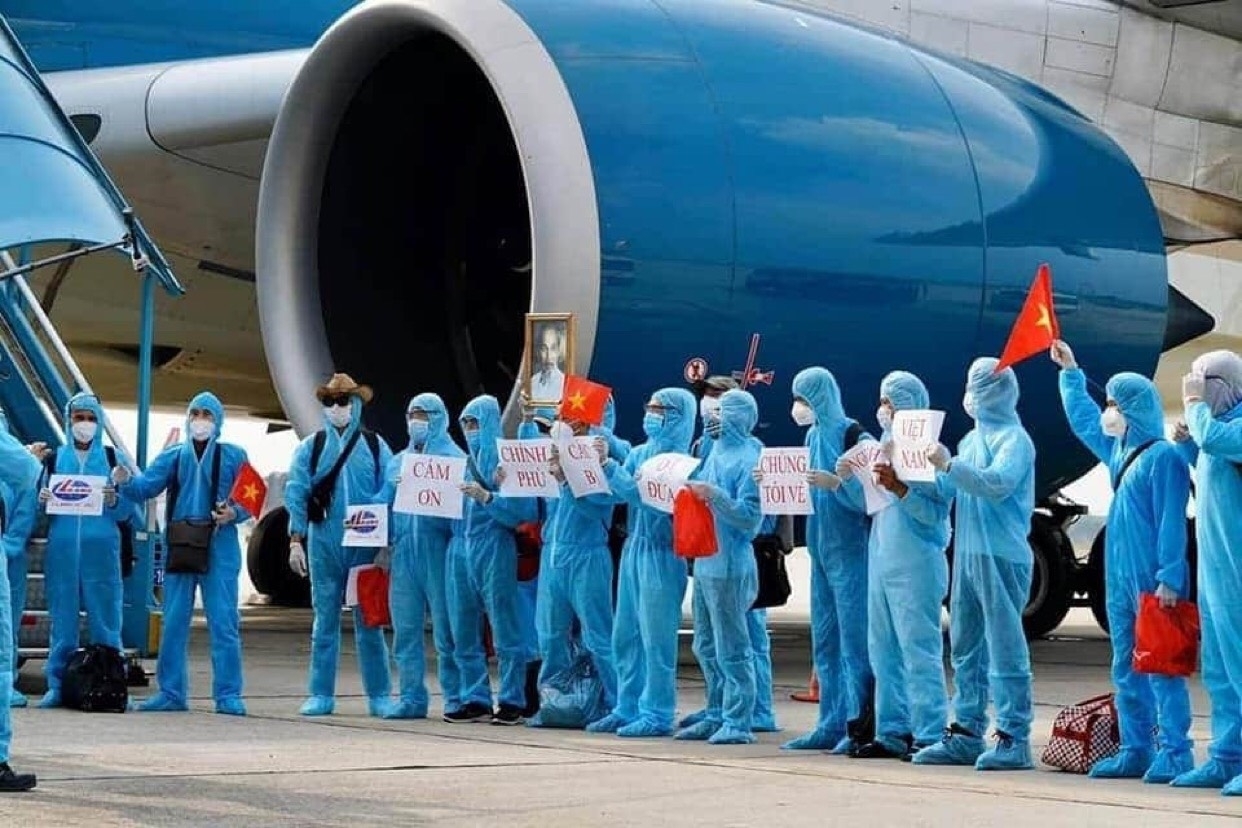VietNamNet introduces the second part of the talks with Ms. Nguyen Thi Huong Lan - Deputy Director of the Ministry of Foreign Affairs’ Department of Consular Affairs - on the protection of Vietnamese citizens amid the coronavirus pandemic.
Unlimited locations
How have diplomatic staff made efforts to protect our citizens when the pandemic has not shown signs of slowing down?
In the context of strong pandemic outbreak in many regions of the world, with the motto of proactive, quick and effective protection of citizens, the Department of Consular Affairs has prioritized a number of specific tasks:
Keep reviewing and updating the situation and data of Vietnamese citizens abroad through current effective communication channels, especially to gather and collect statistics on the number of Vietnamese people who want to repatriate to take appropriate support measures.
Promoting cooperation with host countries to promptly exchange and coordinate the implementation of measures to support Vietnamese citizens; and decentralizing the level of influence and urgency of the issue in each area to propose a rational, effective and efficient plan to bring citizens home.
In addition, the Department of Consular Affairs has regularly coordinated with Vietnamese representative missions abroad to ask host countries to pay attention to and create favorable conditions for our citizens to access and ensure medical, security and safety conditions as well as other necessary supports such as procedures and papers related to the return of our citizens under the direction of the Prime Minister.
With the motto "fighting the epidemic like fighting the enemy", to contribute to fulfill the advising task, the Ministry of Foreign Affairs as a member of the National Steering Committee for the Prevention and Fight against Covid-19 Epidemic, and the Department of Consular Affairs will continue to preside over, coordinate with other agencies to implement the work of citizen protection in the spirit of rapid response without geographical limitation, ensuring appropriate quarantine and medical supervision requirements to protect the rights and the interests of Vietnamese citizens abroad.
 |
|
Ms. Nguyen Thi Huong Lan - Deputy Director of the Ministry of Foreign Affairs’ Department of Consular Affairs
|
Diplomats must quarantine themselves
Are there any difficulties in the protection of citizens overseas amid the pandemic?
The Covid-19 pandemic is an unprecedented worldwide medical crisis in modern times, posing many difficulties for citizenship protection.
First of all, the pandemic has caused many difficulties in human resources for many overseas representative agencies. Not all agencies have officers in charge of citizen protection. Some diplomats had to quarantine themselves because they had close contact with F1 and F2 cases.
Secondly, the organization of flights is also complicated. In some places, it is difficult to get flight permission, while in others, flights have to be held in very remote locations.
Thirdly, those who are subject to citizen protection work are the people who encounter or are at risk of Covid-19 infection but have difficulty accessing medical services; whose visas are expired while being unable to return home; those who are expelled by foreign countries for violations of law; those who are infected with Covid-19 and need treatment. In the first wave of Covid-19 outbreak in Asian countries, our citizens in particular and Asians in general were stigmatized and considered the source of the disease.
Fourthly, the land border management issue, especially in March and April 2020, was under great pressure when the number of citizens returning home was very high.
What recommendations do you give to Vietnamese overseas?
In the process of bringing Vietnamese citizens back home, some flights carried Vietnamese citizens who were infected with Covid-19, which somewhat caused stressful psychology in epidemic prevention.
The need for repatriation is the legitimate right of every Vietnamese citizen living, studying and working abroad, but to share with the current efforts and difficulties of Vietnam, people also need to consider carefully and make the right decision about whether to return home or not in the current epidemic context. Specifically, they should consider the epidemic prevention situation in the host countries and the risks on repatriation flights.
They need to comply with the host country's anti-epidemic measures, regularly check and update regulations of the host country and airlines, ensure to have all required documents for repatriation (especially medical certifications). In the case of not having all necessary documents, the foreign side may refuse to allow transit or exit.
For those returning from abroad to or returning from/through epidemic zones, they need to: make accurate and truthful medical declarations upon entry; strictly obey medical supervision and quarantine for 14 days as prescribed. Acts of hiding, failing to declare, intentionally providing false information, and failing to comply with isolation will be strictly punished in accordance with law.
How can citizenship protection be the fulcrum for the Vietnamese community abroad?
The Department of Consular Affairs has regularly coordinated with Vietnamese representative missions abroad to take measures to protect our citizens abroad.
At home, we have joined other units in the Ministry of Foreign Affairs to strengthen communication and propaganda work. Fast, correct, and sufficient information provision to citizens to help them understand and trust the Party, State and Government’s policies in citizen protection tasks, support and coordinate with domestic and foreign functional agencies in the implementation of citizen protection measures is an important and urgent task.
So far this year, the Ministry of Foreign Affairs has distributed more than 50 citizen protection bulletins. The Ministry’s spokespeople gave more than 100 responses related to the Covid-19 pandemic and citizenship protection tasks at the Ministry’s regular press conference as well as private responses.
 |
|
Vietnamese citizens from Equatorial Guinea return home. Photo: VNA
|
A special flight
How did diplomats try to coordinate with other agencies to successfully bring 219 Vietnamese citizens, including over 120 Covid-19 positive cases from Equatorial Guinea, back home?
Right after receiving the information, the Department of Consular Affairs actively coordinated with the Vietnamese Embassy in Angola to request local authorities to ensure the legal rights of citizens in Equatorial Guinea. We also worked with Vietnamese agencies to develop national repatriation plans and quarantine options to avoid the spread of disease. This flight was very special as more than 120 people were positive for Covid-19.
It was quite hard for our diplomats in Angola to organize a flight in a country without a Vietnam representative office in the context that African countries were applying a travel restriction policy.
Besides the return plan, the reception and treatment of infected citizens, the accompanying people and the crew were also arranged very carefully and in detail. For the flight to take Vietnamese citizens from Equatorial Guinea back home, all citizens and crew after arriving in Vietnam were transported to the Central Hospital for Tropical Diseases for monitoring, treatment and quarantine via specialized vehicles.
Thai An

Stories about a special flight
Ms. Nguyen Thi Huong Lan - Deputy Director of the Ministry of Foreign Affairs’ Department of Consular Affairs – talks to VietNamNet about behind-the-scenes stories about Vietnam’s measures to protect its citizens during the Covid-19 pandemic.